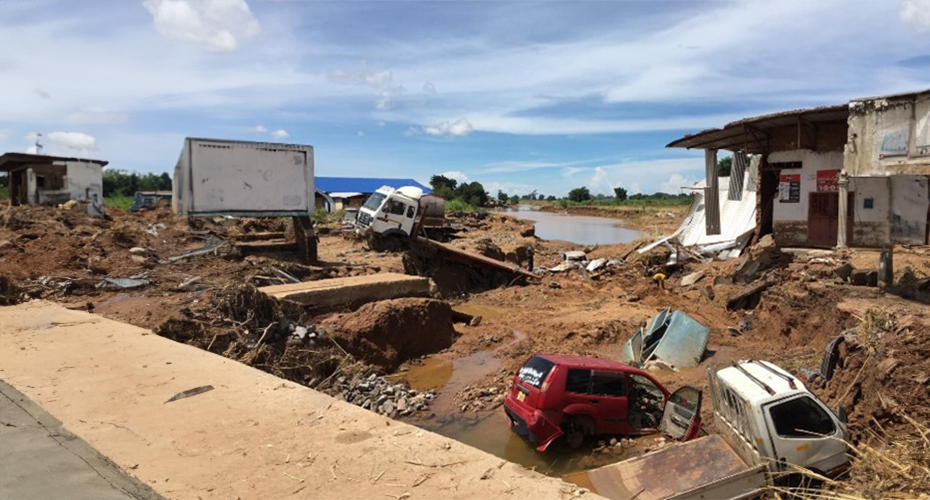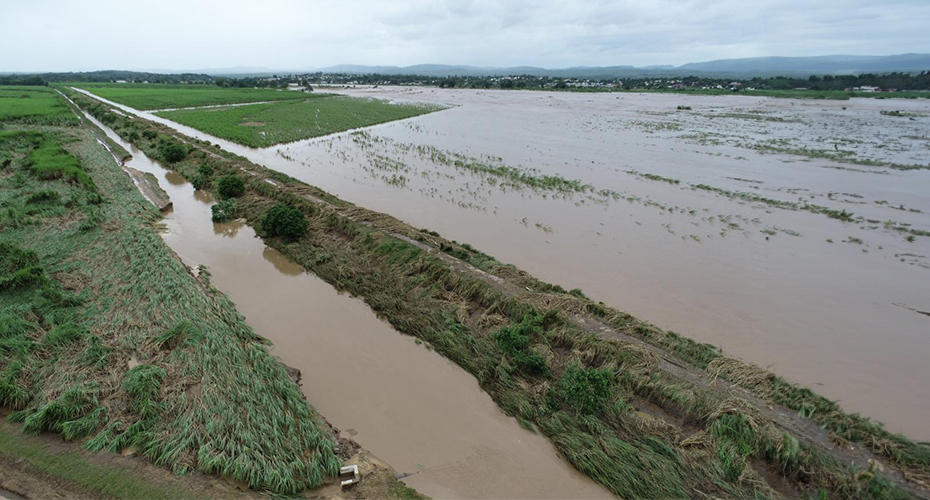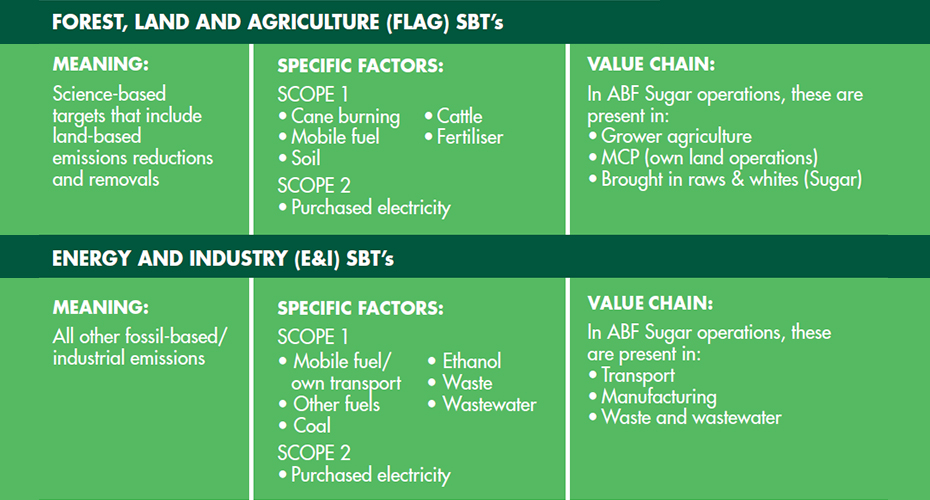In response to the escalating impact of climate change both in Africa and globally, including shifting weather patterns and more frequent extreme events, Illovo Sugar Africa and the broader ABF Sugar group are committed to safeguarding the future of our businesses, communities, and future generations.
The aftermath of Cyclone Freddy last year off the East Coast of Southern Africa serves as a poignant example of the devastating effects of climate change. The cyclone led to the closure of our Maragra sugar operation in Mozambique and caused severe damage to our operations in Malawi. Similarly, and earlier this year, the Dwangwa region in central Malawi experienced unprecedented floods, resulting in loss of life and extensive destruction in the community, as well as detrimental impacts suffered on our own agricultural fields and operations in the area.
Greenhouse gas emissions are a primary driver of climate change. In 2018, ABF Sugar established decarbonisation targets under its Global Minds Local Champions sustainability framework with the aim of reducing our carbon footprint by 30%. To further align with the latest climate science, we are now transitioning to Science-Based targets (SBTs) through the Science Based Targets initiative (SBTi). This initiative offers a robust framework for setting emissions reduction targets based on current climate science, in line with the goals of the Paris Agreement to limit global temperature rise to 1.5°C above pre-industrial levels.
ABF Sugar has validated science-based targets with the SBTi. By embracing science-based targets, we are committed to reducing carbon emissions at our factories, in the fields, and during transportation. These targets will not only demonstrate our efforts in addressing climate change but also showcase our commitment to innovation for long-term success, meeting the demands of stakeholders, customers, and society at large.
CEO Gavin Dalgleish emphasises the personal responsibility we all bear in addressing climate change and ensuring a sustainable future for the next generations. By setting science-based targets, ABF Sugar aims to significantly reduce greenhouse gas emissions with near-term goals and ultimately achieve net-zero emissions by 2050 across various aspects of our operations.
“I tend to take a personal view around climate change and look at 50 years down the line and imagine in my mind, what sort of future or living conditions am I bestowing on my son – what sort of world is he going to be living in, what hardships will he and his family face, will he have access to water – and so on. I think it essential that we all adopt personal responsibility for climate change and look to the ways that we can start making a difference – if we don’t, it will always be someone else’s problem and yet another opportunity missed.”
ABF Sugar’s commitments entail reducing emissions from forestry, land, and agriculture sources, as well as energy and industry emissions (see explanations below), through collaborations and initiatives along the value chain. These ambitious targets underscore our dedication to combatting climate change and contributing to a lower-carbon world.
Although the SBT’s are set as group targets, each business within the company will establish their own carbon reduction goals based on their specific operations. Some of the businesses under the ABF Sugar umbrella have already revealed their emission reduction strategies, each tailored to meet their individual needs. Although these targets may differ across businesses, they are all coordinated to support ABF Sugar's Science Based targets.
ABF Sugar has committed to the following targets:
Each ABF Sugar business will contribute to achieving the targets as outlined above, and its wider sustainability achievements.
“We recognise the material risk that climate change poses to supply chains and businesses worldwide and the importance of the private sector’s role in the transition to a lower-carbon world. Using 2018 as a baseline, we have already made significant reductions and invested in our decarbonisation roadmap and transition plan. Now, the validation of our SBTi targets marks another significant milestone – highlighting our drive to being a sustainable business that contributes to the fight against climate change.”
As we continue this path towards reducing our climate impact, the validation of our SBTi targets marks a significant milestone in our sustainability journey. These endeavours reflect our collective commitment to achieving a more sustainable future and addressing the challenges posed by climate change.


